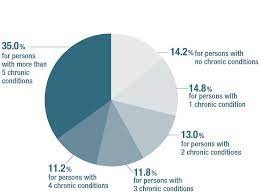Medical & Healthcare
Research Methodology
- Continued growth of Telehealth and Privacy concerns
- Rise Of The Nurse Navigator
- Difference between direct primary care and concierge medicine
- Stem Cell Technology
- Multiple Chronic Condition Research Network
- Wearables Support Bedside Care and Remote Patient Monitoring
- Telehealth Platform Enable Secure Connections from Anywhere
- Mobile Workstations offer more Seamless Care
- Quality Assurance in Nursing
- Decentralized Approach to Care Management
- New Insights into Complex Role of Mitochondria in Parkinson’s disease
Multiple Chronic Condition Research Network
Multiple Chronic Conditions (MCC) refers to a person who has two or more chronic illnesses at the same time. Currently, one out of every four Americans has MCCs, and three out of every four people aged 65 and up have MCCs. Understanding which interventions benefit MCC patients the most, the safety and effectiveness of interventions that may be altered by MCC, and which interventions may need to be changed for certain patient populations. This foundational research can help our country address the needs of Americans living with MCC across time. The AHRQ MCC Research Network, as a whole, aims to develop MCC research, give required guidance to physicians and patients, and advise policymakers on better ways to monitor and promote excellent care for complicated patients.

Fig.1. Chartbook of Multiple Chronic Conditions (MCC)
Treating a patient with many chronic diseases can be the most challenging circumstance a doctor can face. The results that an individual physician wishes may not be the genuine outcome if the patient’s health and quality of life are kept in perspective and as a priority. Working with an interdisciplinary team provides vital information on treatments and outcomes, allowing all parties involved to get a well-rounded perspective. Your patient is more than that. Your patient has feelings — physical, emotional, and mental feelings – that will influence not only who he or she is, but also how he or she responds to treatment.
Guidelines for multiple chronic illnesses must emphasise the importance of patient health in all domains. Over time, chronic multiple ailments will have a negative impact on a person’s quality of life. The diseases must be managed by an interdisciplinary team that provides excellent care, pain management, and supports the patient’s particular goals.
